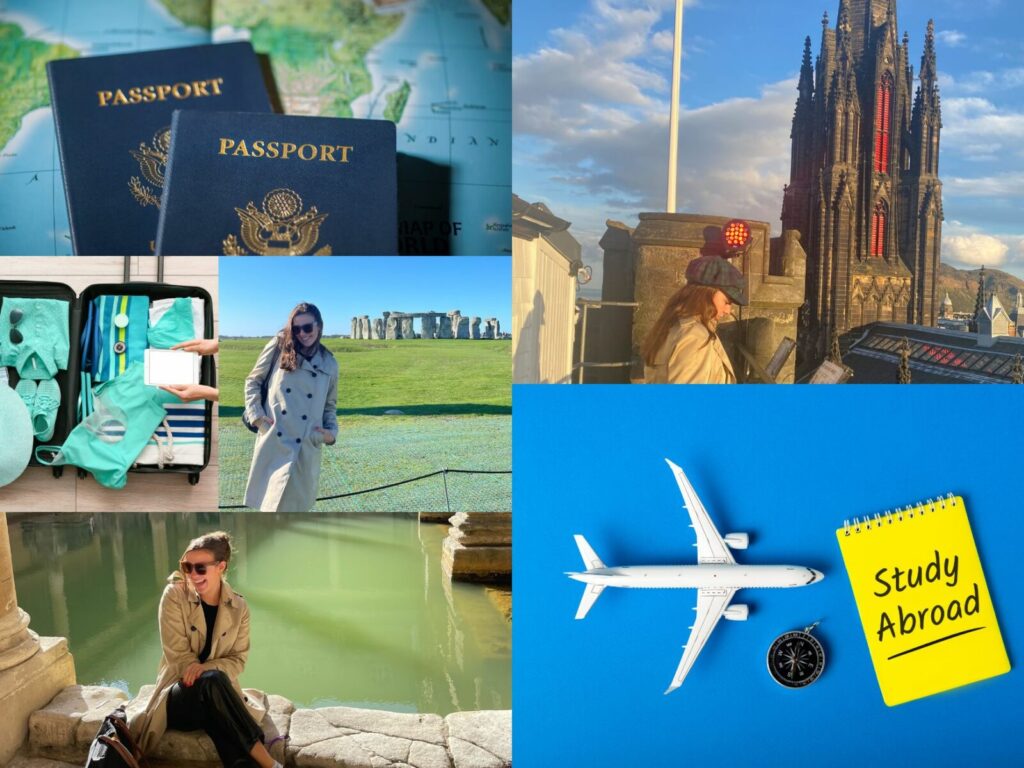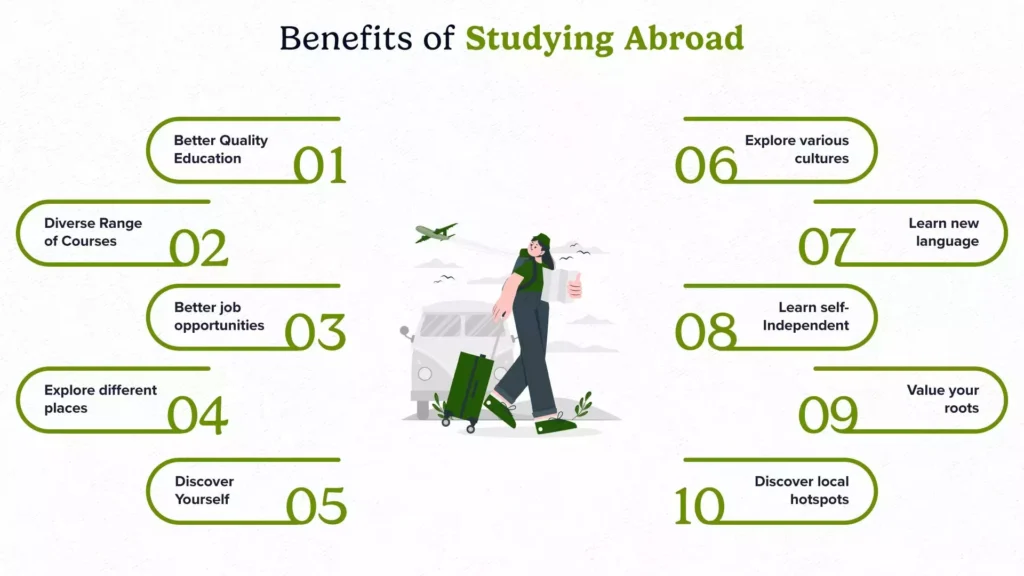Studying abroad offers a transformative experience that extends far beyond academics. It immerses students in diverse cultures, accelerating language proficiency and fostering cross-cultural understanding.
Beyond academic excellence, it promotes personal growth through independence and adaptability, while offering a global perspective through exposure to different educational systems and societal norms. Employers value international experience, and the global network formed during study abroad can enhance career prospects.
Additionally, the opportunity for travel and exploration enriches the experience, while the unique and personalized nature of study abroad programs allows students to tailor their experience to their goals. In essence, studying abroad cultivates lifelong connections, enhances resumes, and shapes individuals into globally minded and culturally aware citizens.
How does studying abroad enhance academic prospects?

Studying abroad can significantly enhance academic prospects in several ways:
Access to Top Institutions
Studying abroad opens doors to prestigious universities and colleges renowned for their academic excellence and cutting-edge research. For example, institutions like Oxford and Cambridge in the UK, Harvard and MIT in the US, and Sorbonne in France attract students from around the world due to their exceptional faculty, resources, and facilities.
Attending such institutions can provide access to state-of-the-art laboratories, libraries, and academic conferences, enriching your learning experience and expanding your academic network.
International Perspective
Experiencing different educational systems and cultures broadens your academic perspective and fosters a more nuanced understanding of global issues. For instance, studying engineering in Germany might emphasize practical, hands-on learning, while a liberal arts education in the US could emphasize critical thinking and interdisciplinary approaches.
Exposure to diverse viewpoints challenges your assumptions, encourages intellectual curiosity, and cultivates a more inclusive approach to problem-solving.
Networking Opportunities
Building connections with students, professors, and professionals from around the world can have long-lasting benefits for your academic and professional career. Engaging in study groups, research projects, and extracurricular activities allows you to collaborate with peers from diverse backgrounds, exchange ideas, and gain insights into different academic disciplines.
Additionally, alumni networks and career services offered by international institutions can help you access internships, job placements, and research opportunities globally.
Language Proficiency
Studying in a foreign country provides an immersive environment for language learning, allowing you to develop fluency or proficiency in a second language.
Mastering a new language not only facilitates communication but also enhances cognitive abilities, such as problem-solving and multitasking. Moreover, proficiency in multiple languages increases your competitiveness in the global job market, particularly in fields like diplomacy, international business, and academia, where cross-cultural communication is essential.
Cultural Immersion
Living in a foreign country exposes you to diverse cultures, customs, and traditions, fostering a deeper appreciation for cultural diversity and intercultural competence.
Whether it’s attending cultural festivals, sampling local cuisine, or participating in community events, immersing yourself in a different cultural context enriches your personal growth and expands your worldview.
Developing empathy, tolerance, and adaptability enhances your ability to navigate multicultural environments and collaborate effectively with people from diverse backgrounds.
Research Opportunities
Many countries offer unique research opportunities and resources tailored to specific academic disciplines. For example, studying marine biology in Australia might provide access to the Great Barrier Reef for fieldwork and conservation research, while studying art history in Italy offers unparalleled access to Renaissance masterpieces and archaeological sites.
Engaging in hands-on research, fieldwork, or internships abroad not only enriches your academic experience but also strengthens your research skills and expertise in your chosen field.
Personal Development
Studying abroad is a transformative experience that challenges you to step out of your comfort zone, adapt to new environments, and overcome cultural and linguistic barriers.
Navigating daily life in a foreign country requires resilience, problem-solving skills, and cultural sensitivity, all of which contribute to personal growth and self-discovery.
Embracing uncertainty, embracing diversity, and cultivating a global mindset are valuable attributes that prepare you for future academic and professional challenges, whether it’s pursuing advanced degrees, conducting research abroad, or working in multicultural teams.
Final Words
Studying abroad offers numerous benefits that can positively impact your academic, personal, and professional life. From accessing world-class education to experiencing cultural immersion, the experience broadens horizons and fosters personal growth.
Furthermore, it enhances career prospects by providing global networking opportunities and cross-cultural competence. While challenges may arise, such as language barriers and homesickness, overcoming them leads to increased resilience and adaptability.
Overall, studying abroad is a life-changing opportunity that opens doors to new possibilities and enriches one’s perspective on the world.
